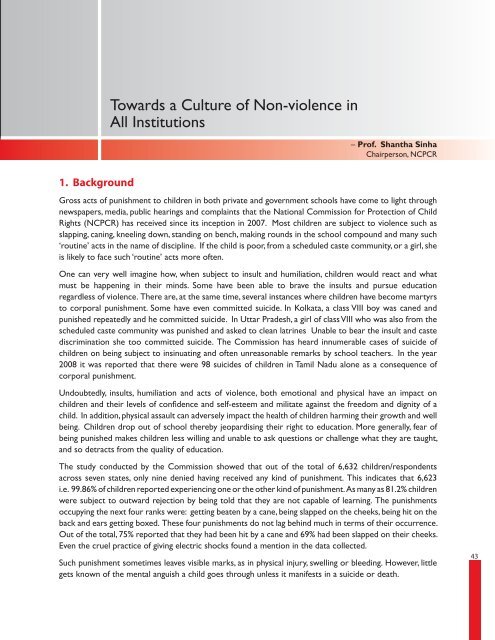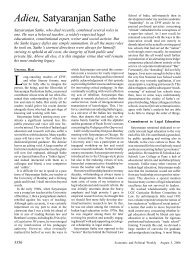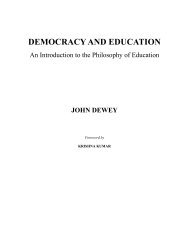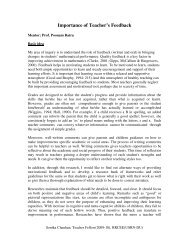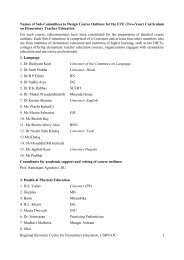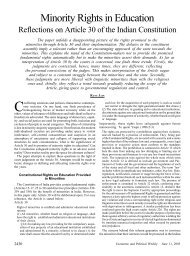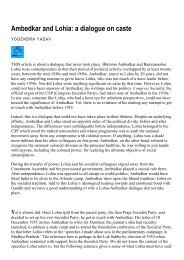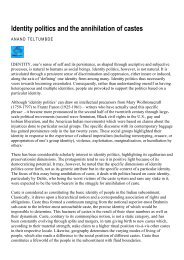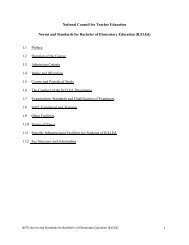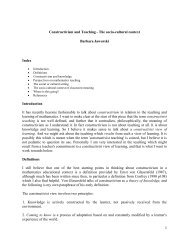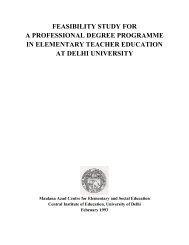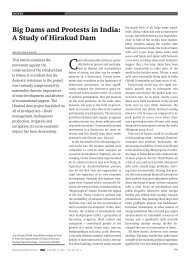Corporal Punishment - Eledu.net
Corporal Punishment - Eledu.net
Corporal Punishment - Eledu.net
You also want an ePaper? Increase the reach of your titles
YUMPU automatically turns print PDFs into web optimized ePapers that Google loves.
Towards a Culture of Non-violence inAll Institutions– Prof. Shantha SinhaChairperson, NCPCR1. BackgroundGross acts of punishment to children in both private and government schools have come to light throughnewspapers, media, public hearings and complaints that the National Commission for Protection of ChildRights (NCPCR) has received since its inception in 2007. Most children are subject to violence such asslapping, caning, kneeling down, standing on bench, making rounds in the school compound and many such‘routine’ acts in the name of discipline. If the child is poor, from a scheduled caste community, or a girl, sheis likely to face such ‘routine’ acts more often.One can very well imagine how, when subject to insult and humiliation, children would react and whatmust be happening in their minds. Some have been able to brave the insults and pursue educationregardless of violence. There are, at the same time, several instances where children have become martyrsto corporal punishment. Some have even committed suicide. In Kolkata, a class VIII boy was caned andpunished repeatedly and he committed suicide. In Uttar Pradesh, a girl of class VIII who was also from thescheduled caste community was punished and asked to clean latrines Unable to bear the insult and castediscrimination she too committed suicide. The Commission has heard innumerable cases of suicide ofchildren on being subject to insinuating and often unreasonable remarks by school teachers. In the year2008 it was reported that there were 98 suicides of children in Tamil Nadu alone as a consequence ofcorporal punishment.Undoubtedly, insults, humiliation and acts of violence, both emotional and physical have an impact onchildren and their levels of confidence and self-esteem and militate against the freedom and dignity of achild. In addition, physical assault can adversely impact the health of children harming their growth and wellbeing. Children drop out of school thereby jeopardising their right to education. More generally, fear ofbeing punished makes children less willing and unable to ask questions or challenge what they are taught,and so detracts from the quality of education.The study conducted by the Commission showed that out of the total of 6,632 children/respondentsacross seven states, only nine denied having received any kind of punishment. This indicates that 6,623i.e. 99.86% of children reported experiencing one or the other kind of punishment. As many as 81.2% childrenwere subject to outward rejection by being told that they are not capable of learning. The punishmentsoccupying the next four ranks were: getting beaten by a cane, being slapped on the cheeks, being hit on theback and ears getting boxed. These four punishments do not lag behind much in terms of their occurrence.Out of the total, 75% reported that they had been hit by a cane and 69% had been slapped on their cheeks.Even the cruel practice of giving electric shocks found a mention in the data collected.Such punishment sometimes leaves visible marks, as in physical injury, swelling or bleeding. However, littlegets known of the mental anguish a child goes through unless it manifests in a suicide or death.43


